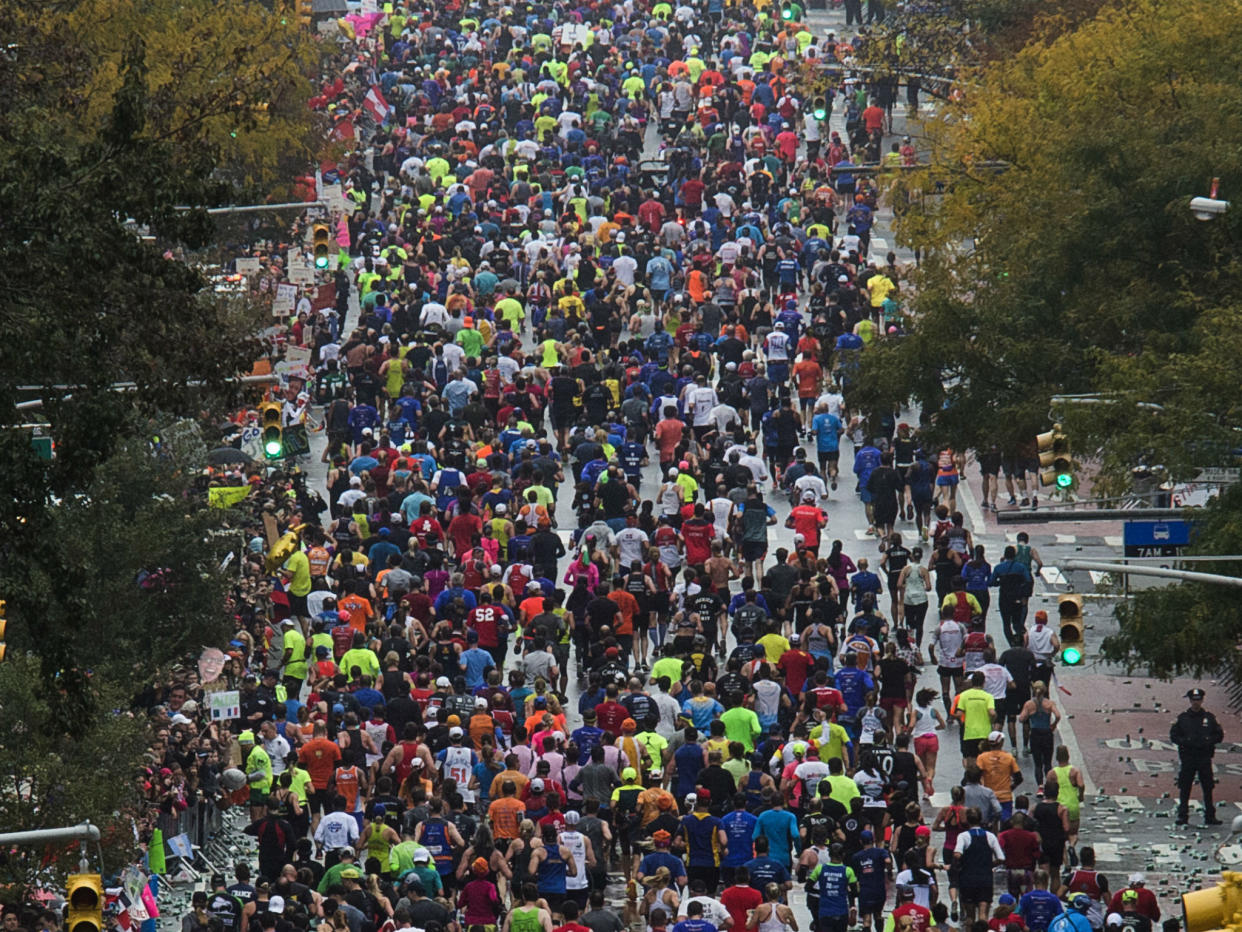'I knew New York would take good care of us': Marathon runners praise police as thousands gather days after attack

Five days after a truck plowed through a bike path in lower Manhattan, killing eight people and injuring 12, thousands of people filled the streets of New York City with music, hugs, and cheers. It was not a vigil, but the annual New York City Marathon – one of the world’s largest and best-attended sporting events.
In the days after the truck attack, New York authorities were on high alert. Hundreds more officers were deployed across the city, and bomb-sniffing dogs were sent to patrol tourist attractions and subway stations. More security was deployed for the marathon than any year in history, according to Carlos Gomez, Chief of Department for the New York Police Department (NYPD). The event was expected to draw more than 50,000 runners, and as many as 2.5m spectators.
Before the event, on the South side of Central Park, empty roads were punctuated by emergency vehicles with flashing lights, police talked among themselves, keeping an eye on the number of tourists dragging suitcases up the street on the way to their next night's stay.
At the Central Park finish line on Sunday, many of those runners and attendees said they hadn’t thought twice about turning out.
“I wasn't worried about it at all,” runner Caitlin Tateishi told The Independent. “I knew New York would take good care of us.”
The marathon was Ms Tateishi’s sixth. She has also run the Boston Marathon, where a terrorist attack killed three people and injured hundreds more in 2013. Her friend, Emily Richards, who turned out to support her, said their running group had been worried about something similar happening in New York,
“But you just have to live your life and do what you want to do, and not be afraid of what might happen,” Ms Richards said. “You could get hit by a car crossing the street.”
The attack did little to deter another young woman, 36-year-old Shalane Flanagan, who won Sunday’s marathon with a time of 2 hours, 26 minutes and 53 seconds. She became the first US woman to win the marathon in 40 years, and unseated three-time defending champion Mary Keitany of Kenya. The Massachusetts native crossed the finish line with tears in her eyes, pointing and shouting excitedly.
Hours later, as a drizzly rain fell on the streets of New York, even more tears were being shed, and more shouts being called, as runners continued to cross the finish line and meet up with their family members.
Matt Rouse, shaking and wrapped in a marathon-branded poncho, met up with his wife, Gina, to minutes after he finished. They had left their three kids with his parents at home in Tennessee so she could come watch him. When he heard about the New York terrorist attack, he said, he was more worried about the safety of his wife waiting in the stands than himself on the trai.
But Ms Rouse said she wasn’t worried at all.
“The security was just everywhere; NYPD casing the whole place,” she said. “
“They didn't even want to let me in the park – Which was good!” she added with a laugh.
Along with the officers lining the event, checking bags and even patting down entrants, the NYPD staged more sand trucks and vehicles along the course than ever before. Mr Gomez said they had more than doubled the number of rooftop observation teams and counter-sniper teams, and also deployed heavy weapons teams and police dogs throughout the city.
June Minter, who was visiting from London to watch her daughter and son-in-law run, said she appreciated the enhanced security at the marathon. But in the end, she would always have been there, with or without it.
“Living in London, we've got used to this I think – which is a terrible thing to say,” she said.
She added: “You look at it and you say, ‘Oh gosh that is so bad,’ but how do you stop it? How can you let it change your life and not do the things you want to do?“

